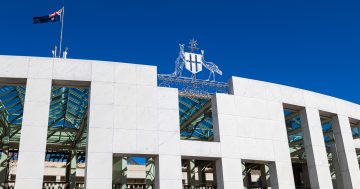
A salary increase places Anthony Albanese’s pay marginally higher than that of US President Joe Biden. Photo: Anthony Albanese Facebook.
The Remuneration Tribunal has bumped the salaries of MPs and department secretaries to make Australia’s top public officials among the highest paid in the world.
A 3.5 per cent pay rise will lift Prime Minister Anthony Albanese’s annual salary by $20,570 from 1 July, taking his package to $607,520.
The head of his department, Secretary of the Department of Prime Minister and Cabinet Glyn Davis, will get a total remuneration package of more than a million dollars a year.
His annual remuneration jumps from $977,200 to $1,011,410.
Opposition Leader Peter Dutton gets an extra $14,640 to $432,280 a year, while a backbencher without extra portfolio loadings will be paid $233,660 annually.
Newly re-appointed Treasury Secretary Steven Kennedy gets a $33,000 pay increase to an annual package of $986,120. At least five other department secretaries are earning more than $950,000 a year.
The Remuneration Tribunal’s decision to award the 3.5 per cent pay rise follows a 4 per cent hike last year.
The pay increases apply to the broad spectrum of offices in the Tribunal’s determinative jurisdiction, including “the most senior offices in the public service and statutory agencies, certain government-owned businesses, secretaries, the federal judiciary, numerous part-time offices and parliamentarians”.
It notes that adjustments in remuneration of this kind recognise the “achievement of ongoing objectives and note the steady evolution in responsibility” that is characteristic of public administration.
“The Tribunal has decided to increase remuneration by 3.5 per cent for public offices in its jurisdiction. This increase applies from 1 July 2024,” it said in a statement.
“The Tribunal completed its last review of remuneration for public offices in its jurisdiction in August 2023 and determined an adjustment of 4.0 per cent would apply from 1 July 2023 for all offices, except parliamentarians, for whom the increase had effect from 1 September 2023.
“The Tribunal is obliged to consider the outcome of the Annual Wage Reviews of the Fair Work Commission in its annual review deliberations. It takes these outcomes along with a wide range of other factors into its decision.
“The Tribunal also considered the Federal Government’s Budget outlook as part of its deliberations, and considered economic conditions more generally including published data on movements in both private and public sector remuneration.”
Its decision was also influenced by the pay increases provided to lower-ranking Australian Public Service employees under the Public Sector Workplace Relations Policy 2023.
An 11.2 per cent pay rise over three years was negotiated for staff across the APS in its latest enterprise agreement.
“Remuneration data in general reflects a continued period of increasing wage growth across the economy, with the annual rate of growth rising each quarter since December 2020 to December 2023,” the Tribunal’s statement says.
“The Australian Bureau of Statistics seasonally adjusted March 2024 annual Wage Price Index rose 3.8 per cent in the public sector, 4.1 per cent in the private sector and 4.1 per cent overall.
“In 2023, these figures were 3.0 per cent in the public sector, 3.8 per cent in the private sector and 3.7 per cent overall.”
The new salary structure places Australia’s Prime Minister on a marginally higher income than that of Joe Biden, the President of the United States.
It also places the hierarchy of Australia’s bureaucracy at the top levels of salary earners when compared internationally.
In explaining its decision, the Remuneration Tribunal said the pay increases reflect the need for the public service to compete with the private sector and attract and retain top talent.
“When determining remuneration for the broad spectrum of public offices within its jurisdiction, the Tribunal’s primary focus is to provide competitive and equitable remuneration that is appropriate to the responsibilities and experience required of the roles, and that is sufficient to attract and retain people of calibre,” it said.
“Many of these office holders do not expect or require that monetary compensation for their roles in the public sector be set at private sector levels. Rather, office holders serve for the public good and the opportunity to influence economic and social policy initiatives.”
Original Article published by Chris Johnson on Riotact.











